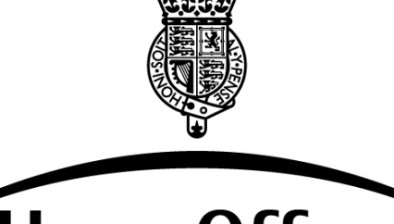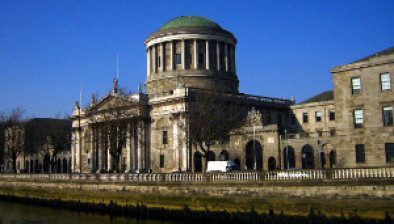NI High Court: Northern Ireland had jurisdiction to prosecute IRA members covertly recorded in the Republic of Ireland

Northern Ireland’s High Court has rejected an application for judicial review where it was argued that terrorism offences committed in the Republic of Ireland required special permission to be pursued in Northern Ireland.

About this case:
- Citation:[2022] NIQB 24
- Judgment:
- Court:NI High Court
- Judge:Mrs Justice Keegan
The applicant also lost in his claim that the Director of Public Prosecutions failed to properly consent to prosecute the case.
Background
The applicant, Paul Crawford, sought leave to apply for judicial review of a criminal prosecution. He was convicted of an offence of belonging to a proscribed organisation, the IRA, contrary to section 11(1) of the Terrorism Act 2000.
The prosecution of the applicant and a co-accused, Carl Reilly, arose from a covert recording of a conversation said to have taken place at the Carrickdale Hotel, Dundalk, in the Republic of Ireland.
This covertly recorded conversation was evidence that Mr Crawford was a member of the IRA and that Mr Reilly directed terrorism and was a member of the IRA.
Judicial review application
The application to review this prosecution included two grounds of challenge.
Ground 1: Invalid prosecution pursuant to section 117 (2A) of the Terrorism Act
The first ground argued that, because the prosecution in this case involved covert surveillance taken in the Republic of Ireland, it was necessary to receive the permission of the Advocate General to pursue the case.
This was because, pursuant to the Terrorism Act, specific permission is required for cases which involve an “extra-territorial” offence. In Northern Ireland, such consent would have to be given by the Advocate General.
However, the court was not moved by this argument. They noted that there is an obvious distinction between where the offending occurred, and where the evidence which is said to ground the offence was obtained from.
The prosecution case was that the two men, recorded in the Carrickdale Hotel, were the applicant and his co-accused. They were clearly in the Republic of Ireland when recorded, but were alleged to have discussed IRA activity more generally.
A Public Prosecution Service letter dated 5 November 2021 stated: “The prosecution case against your client is that he was a member of the IRA in this jurisdiction.”
Ultimately, the court found that although the two accused were in the Republic of Ireland at the time their conversation was recorded, they discussed IRA business in Northern Ireland.
Therefore, the court found the first ground of challenge to be inherently weak, and was not an arguable case with a reasonable prospect of success.
Ground 2: That the authority for prosecution signed by Mr Stephen Herron was unlawful as he was not the DPP at the relevant time
Having determined that the consent of the Advocate General was not required for this prosecution, the second issue to be determined was whether the DPP consent to prosecute was valid, because it was not signed by the DPP.
Section 33 of the Justice (Northern Ireland) Act 2002 deals with consents to prosecutions, and states that certain documents must be signed by the DPP or Deputy Director. Therefore, the question arose as to whether the Director or Deputy Director needed to sign the consent in this case.
Here, the court looked at the exception embodied in section 36 of the act, which allows for delegation of this duty. In this case, the consent was not given by the DPP, but rather by a solicitor in the DPP’s office at the relevant time. Therefore, the powers of delegation came into focus.
Interpreting section 36 in its ordinary and natural meaning, the court found that it allows a delegation of “any of his powers” by the DPP to “any public prosecutor”. The court therefore rejected the applicant’s submission.
The applicant also argued that there would be a “lopsided incongruity” if the DPP could delegate his functions under section 117(2A)(a) of the 2000 Act when the Solicitor General for England and Wales can only delegate to the Attorney General for Northern Ireland and no one else.
The court rejected this submission, as it again conflicted with the clear and unambiguous language of section 36.
The final argument raised by the applicant was that the consent required under section 117(2A)(a) of the Terrorism Act should involve the DPP himself, given the serious nature of this offence.
The court accepted that such a task would require experienced personnel, but noted that the DPP does not have to undertake this exercise in every such case himself. This argument was therefore rejected.
Alternative remedy
As a final point, the court considered whether juridical review had been the most appropriate form of remedy in this case. They noted that the prosecution was for terrorist offences alleged to have happened some seven years ago.
The court had therefore been anxious to avoid any further delay, but was surprised that the issue of the validity of the prosecution arose so late in the proceedings. Although the court exercised its discretion to deal with the merits of the case, they were cognisant of the respondent’s claims of delay, alternative remedy, and satellite litigation.
Ultimately, the court concluded that alternative avenues were open to the applicant to bring a no bill or abuse of process application in the first instance before the Crown Court: “The Crown Court has the facility to deal with this type of issue and has done so in the past in this jurisdiction. Judicial review is a measure of last resort and should only be exercised where alternative remedies are exhausted.”
Here, the court stressed that judicial review should only be used in cases after alternative remedies are tried or unavailable.
Conclusion
Ultimately, the court did not find any merit in the two arguments raised in this case. The case was also well out of time for judicial review, and there was no good reason to justify extending this deadline.
The court did not find that any of the arguments established an arguable case for leave to apply for judicial review and the application was dismissed.










